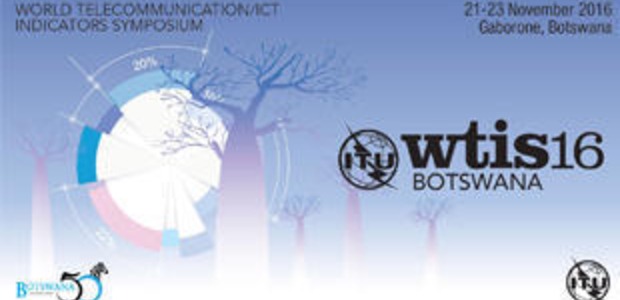advertisement
#wtis2016: Diamonds will live forever but data will remain King
The 14th World Telecommunications is being held in Botswana a land rich in diamonds. Indeed in the land of Botswana…

The 14th World Telecommunications is being held in Botswana a land rich in diamonds. Indeed in the land of Botswana diamonds will live forever but one thing is for sure data will remain king.
Well, this particular phrase was a key take away from the Ministerial Roundtable held today at the 14th WTIS symposium in Gaborone Botswana.
With the theme leaving no one behind, the roundtable comprised of five African Ministers of ICT who were H.E. Mr Onkokame Kitso Mokaila, Minister of Transport and Communications, Botswana, H. E. Mr Vincent F. Byron, Attorney General, Minister of Justice, Legal Affairs and Communications, St. Kitts and Nevis, H.E. Dr Rufino Ovono Ondó Engonga of Equatorial Guinea, H.E. Dr Win Busayi Juyana Mlambo, Deputy Minister of Information Communication Technology, Postal and Courier Services, Zimbabwe and H.E. Mr Dumisani Ndlangamandla, Minister, Ministry of Information, Communication and Technology, Swaziland.
advertisement
In this discussion, Big Data dominated the talk. Data was found to be quite critical for Governments moving forward even as countries were looking into achieving the SDGs by 2030.
Another key thing was that Data was important to African Governments in fulfilling the public policy and equally important to the Private Sector to find and create opportunities. Data was identified as a critical element in reading the map understanding what is on the ground in terms of infrastructure, skills set, usage and access.
“Big data is a big issue and it is important for African countries to keep track and be able to serve and submit the traditional statistics that we have by gathering official statistics that we have,” said Dr. Cosmas Zavazava, Chief of Department, Projects and Knowledge Management, ITU.
advertisement
To the host Botswana, The Minister was quick to point out they were fully aligned to the SDGs and to achieve this they needed and relied highly on data from the National Statistics. in 2004 to 2007 the country came up with guiding policies that will guide them with ICT adoption. So far the country was also connected to the undersea cable and the country was working hard to develop a backbone infrastructure.
“We looking into developing telemedicine. We have as well partnered with Microsoft in deploying TV Whitespaces. We have tried to connect villages despite being a sparsely populated Nation. We are also out optic fiber to local access points,” he said.
On data collection, he said that the relationship between Regulatory Body, National Statistics, and Policy Makers could not be emphasized. “We need to have true statistics and right initiatives in place so as to get the right data, numbers, and statistics in place so that we are able to make informed decisions for our country. We now know that data is key for any Government currently.”
advertisement
The Ministers were tasked with among other, ways of trying to achieve a truly inclusive information society. Those at the “bottom of the pyramid”, including low-income groups, the illiterate, persons with special needs or those living in rural areas, need to equally benefit from high-speed and high-quality Internet connections.
These population groups not only run the greatest risk of being left outside but also are those who could benefit the most from the opportunities that ICTs can offer for development.
However, most of the ministers confirmed presence undersea cables in their countries which was driving access of internet to its citizens. To landlocked countries like Swaziland, HE Mr. Dumisani Ndlangamandla pointed out that they did not invest in undersea cable. Instead, they took that as a plus and made bilateral talks with all the surrounding countries that had an undersea cable so that they could as well share in the same opportunity and not be left behind.
Another issue brought up and Governments were called to look into was the ICT Legal Frame Work to help policy makers require data to track relevant inequalities. The Ministerial Roundtable also discussed national initiatives on how to close the digital divide and to ensure an inclusive information society.
Capacity building is important but also co-ordination is critical and partnerships are important in terms of Governments working together with the Private sector as good citizens and not just a provider of services.
The Regulatory Framework and Policy frameworks must be right for any country must be right for countries to embrace new and emerging technologies with ease.
The cost and affordability of new and appropriate technologies that respond to the needs on the ground were identified as critical elements.
Embracing the Internet of Things and Machine to Machine Communication is critical. By 2020 there will be over 30 billion connected devices, therefore important for Government to keep legal framework in line with the rapid moving technological environment. There was a call to as well align the SDGs with new technologies.